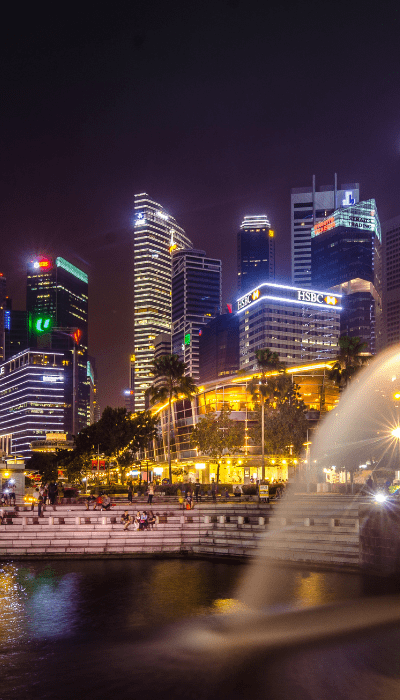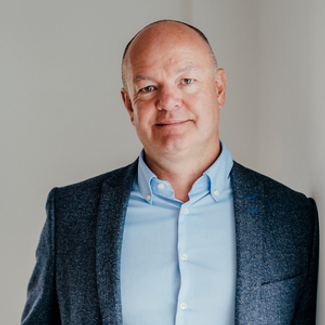Have you ever considered that your Pilot career could take you to Singapore?
With 40% of Singapore’s population made up of expatriates, there is no denying that the country is a magnet for people looking to set up a new life abroad. Around 2 million expats currently live in Singapore and have relocated there from all over the world.
We wanted to share why we believe Singapore is a great place to live and work as a Pilot, and everything you will need to know before making the move.
Key Takeaways
Expat-friendly environment: Singapore has a large expat population, high-quality healthcare and education, and is considered very family-friendly, making it attractive for Pilots relocating with or without families.
Cost of living and lifestyle: While Singapore can be expensive, salaries generally match costs. Accommodation varies widely, food options are affordable, and the city offers a mix of urban amenities, green spaces, and regional travel opportunities.
Climate and practical considerations: Singapore is hot and humid year-round, with monsoon seasons affecting flying conditions. Public transport is reliable and affordable, and cultural norms and local laws should be respected when relocating.
1. Singaporean culture
Singaporean culture is a unique mix of both Asian and European cultures, you will find the city very culturally diverse.
Religion also plays a huge part in Singaporean culture and it is considered to be one of the most religious places in the world. In fact, Singapore is a place where respect is shown towards all citizens, their beliefs and each different religion. The most common religions in Singapore are Buddhism, Hinduism, Islam and Christianity.
2. Living in Singapore
Singapore is a thriving country, known for its cosmopolitan vibe and ‘work hard, play hard’ culture. Many expats move to Singapore for this reason alone but also for the country’s many attractions, such as the beautiful urban gardens, fantastic shopping malls, authentic food, friendly people and booming nightlife.
Unlike most major urban cities, Singapore is uniquely green and you’ll find a number of parks with trees, flowers and vast amounts of greenery, all offering a real sense of nature and tranquillity in what is such a busy place.
For those who are looking for a little more calm outside of the city, you can head to the white sandy beaches, which are surrounded by crystal blue water. All in all, Singapore is a place that offers a unique blend of both urban and natural scenery.
Despite the relaxed and diverse culture, it is important to know that there are several laws residents need to be aware of. For example, it is illegal to chew gum or litter in public locations; if you are caught you will be faced with a hefty fine. These laws have been put in place to ensure Singapore remains a clean and pleasant place to live.
3. Finding accommodation
Most Singaporean residents choose to live in apartments, with the majority of expats opting for rented accommodation. This is primarily because they are tied to working visas and committing to buying a home can seem risky. Those who own their apartments tend to be permanent residents.
The easiest way to secure an apartment is to employ the services of an estate agent. They will take all of your housing requirements and present you with a list of housing options for you to choose from. Estate agents are great for identifying suitable locations and will liaise with the owners or corresponding agents for the duration of your rental agreement.
The cost of accommodation will vary depending on the type of property you opt for and how central you want to be. For example, you can rent an apartment in a serviced complex with tennis courts, a gym and a swimming pool for approximately $7,000 per month. On the other hand, you can live in a property share for much less and monthly rent in a furnished apartment located further outside of the city will be much lower at around S$2,500.
4. The cost of living
Singapore is an expensive place to live but most salaries are in line with the cost of living. If you have lived in London or other large cities in Europe, you will find the cost of living in Singapore relatively similar, if not less expensive. Of course, this can vary depending on where you live and what additional outgoings you have. Like most cities, the more central you are, the more you should expect to pay.
When it comes to the cost of groceries, it can be more cost-effective to eat out, which isn’t a bad thing as Singapore is famous for its local Asian cuisine. The best place to find local and inexpensive food is at the ‘hawker centres’, which are food courts offering a range of different local delicacies. The portion sizes are extremely generous and will only set you back $4-$7 (equivalent to approximately £2.50-£4). The supermarkets can be more expensive but there are food markets located in most residential areas. Here you can buy fresh produce for a lower cost, you just have to be prepared to get up early.
A meal in a high-end restaurant will be more expensive and you can expect to pay anything between S$50 – S$300 per person. Purchasing alcohol in both the bars and supermarkets is the most costly purchase, so the best thing to do is find a ‘happy hour’ in a bar where prices will be considerably lower.
5. Climate
An expat described the climate in Singapore for us: “before you come to Singapore you can only try to imagine what the humidity may feel like, but nothing can prepare you for your visit.” Singapore is only 70 miles away from the equator – meaning there are no seasons and the temperature remains hot all year round. Although Singapore is known for being extremely humid, most bars, restaurants, homes and offices are equipped with air conditioning.
Be prepared for the most spectacular thunderstorms and when the monsoon season hits between November and December, it doesn’t rain, it pours.
From a practical perspective, the climate will make flying conditions more challenging for Pilots who are familiar with taking off and landing in cooler weather conditions.
6. Enjoying Singapore outside of work
There is so much to see and do in Singapore, so you’ll be spoilt for choice. Whether it’s visiting the famous Marina Bay Sands SkyPark for the best views of the city, strolling along the marina or in one of the city’s famous parks, you won’t be disappointed by Singapore’s beauty.
Singapore offers many attractions that come at no cost. For example, you can see dolphins at the Marina Park, visit the historic temples or head to China Town. Or if you like to keep active, why not run along the waterfront or join a sports team?
If you are keen to explore more areas beyond Singapore, why not head to one of the neighbouring countries for a long weekend? Malaysia, Thailand and Indonesia are only a one to three-hour flight away.
7. Getting around the city
The best way to travel around the city is by public transport as Singapore offers a clean, reliable and most importantly air-conditioned transport system.
The three main ways people travel are via the MRT (Mass Rapid Transit), by bus or by cab. Public transport is inexpensive, with a 20-minute train journey typically costing around S$1.50.
8. A family-friendly city
Singapore is a great place for families to live and Singaporeans are very welcoming and accommodating. In fact, a recent HSBC survey* found that Singapore is the number one place in the world for families to live.
Both health care and education are of an extremely high standard in Singapore. The country has a world-renowned education system and there are many reputable public and private schools for families to choose from. International schools follow the same education curriculum as the UK, but overall the education in Singapore is of a high standard.
Public healthcare is also excellent, however, most expats still go private as they will be offered this option by their employer.
If you are looking for ways to keep the children entertained outside of school, Singapore is the place to be. You will find everything from swimming pools to waterparks, cinemas, the zoo and several sports facilities – not to mention all of the outdoor parks and malls.
9. What are the career opportunities like for Pilots?
With an established and highly experienced Pilot Recruitment team operating across the Asia-Pacific region, GOOSE has a number of Pilot opportunities on offer. Our Recruitment Consultants are highly networked and have recruitment partnerships with some of the top airlines in Singapore.
GOOSE loves to talk to Aviation Professionals from across the world
Follow GOOSE Recruitment on LinkedIn, Facebook and Twitter for the very latest aviation news, updates, exclusive insights and regular hot jobs.




.png)

